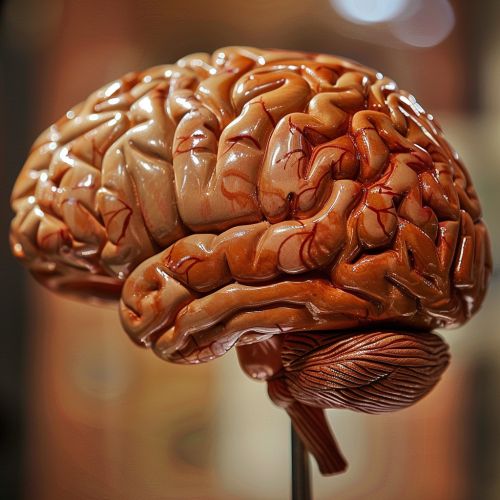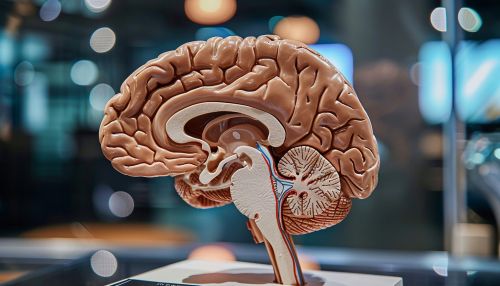History of Cognitive Science
Introduction
The field of cognitive science is an interdisciplinary domain that studies the mind, intelligence, and behavior from an information processing perspective. It encompasses various disciplines such as psychology, artificial intelligence, philosophy, neuroscience, linguistics, anthropology, sociology, and education. This article delves into the history of cognitive science, tracing its roots, major milestones, and the evolution of its core concepts and methodologies.
Early Foundations
Ancient and Medieval Periods
The origins of cognitive science can be traced back to ancient philosophical inquiries into the nature of the mind and knowledge. Greek philosophers such as Plato and Aristotle made significant contributions to early theories of cognition. Plato's theory of forms and Aristotle's empirical investigations laid the groundwork for later cognitive theories.
During the medieval period, scholars like Thomas Aquinas and Avicenna further explored the relationship between the mind and the body, integrating philosophical and theological perspectives. These early inquiries set the stage for more systematic studies of cognition in the modern era.
Enlightenment and Early Modern Period
The Enlightenment era brought a renewed focus on human reason and empirical investigation. Philosophers such as René Descartes, John Locke, and Immanuel Kant made pivotal contributions to the understanding of the mind. Descartes' dualism, Locke's empiricism, and Kant's transcendental idealism provided diverse frameworks for exploring cognitive processes.
The development of experimental psychology in the late 19th century, spearheaded by figures like Wilhelm Wundt and William James, marked a significant shift towards empirical methods in the study of the mind. Wundt's establishment of the first psychology laboratory and James' functionalist approach laid the foundation for modern cognitive psychology.
The Birth of Cognitive Science
The Cognitive Revolution
The mid-20th century witnessed a paradigm shift known as the Cognitive Revolution, which challenged the dominance of behaviorism in psychology. Key figures such as Noam Chomsky, Herbert Simon, and Allen Newell played crucial roles in this transformation. Chomsky's critique of B.F. Skinner's behaviorist model and his development of transformational grammar highlighted the importance of internal mental processes.


Simon's and Newell's work on artificial intelligence and their creation of the General Problem Solver demonstrated the potential of computational models in understanding human cognition. The publication of Ulric Neisser's "Cognitive Psychology" in 1967 further solidified the field's identity and scope.
Interdisciplinary Integration
Cognitive science emerged as a distinct field by integrating insights from multiple disciplines. The establishment of interdisciplinary research centers, such as the Center for Cognitive Studies at Harvard University, facilitated collaboration among psychologists, computer scientists, linguists, and philosophers.
The development of connectionism and neural networks in the 1980s provided new models for understanding cognitive processes. Researchers like David Rumelhart and James McClelland advanced the idea that cognitive functions could be understood in terms of interconnected networks of simple units, akin to neural structures in the brain.
Core Concepts and Methodologies
Mental Representation
One of the central concepts in cognitive science is mental representation, which refers to the way information is encoded, stored, and manipulated in the mind. Theories of mental representation explore how sensory input is transformed into meaningful cognitive structures.
Computational Models
The use of computational models has been a hallmark of cognitive science. These models simulate cognitive processes using algorithms and artificial intelligence techniques. Symbolic AI and subsymbolic AI represent two major approaches within this domain. Symbolic AI focuses on high-level cognitive functions using rule-based systems, while subsymbolic AI emphasizes lower-level processes using neural networks.
Cognitive Neuroscience
The advent of advanced neuroimaging techniques, such as functional magnetic resonance imaging (fMRI) and positron emission tomography (PET), has revolutionized the study of the brain's role in cognition. Cognitive neuroscience bridges the gap between cognitive psychology and neuroscience, investigating how brain activity underlies cognitive functions.
Major Milestones and Theories
Language and Cognition
The study of language has been a central focus in cognitive science. Noam Chomsky's theory of universal grammar posits that the ability to acquire language is innate to humans and governed by a set of universal principles. This theory has sparked extensive research into the cognitive and neural mechanisms underlying language acquisition and processing.
Perception and Attention
Research on perception and attention has explored how sensory information is processed and filtered by the brain. Theories such as feature integration theory and biased competition theory have provided insights into the mechanisms of visual perception and selective attention.
Memory and Learning
The study of memory and learning has been another key area of cognitive science. The multi-store model of memory, proposed by Atkinson and Shiffrin, describes memory as consisting of sensory, short-term, and long-term stores. Subsequent research has refined this model, exploring the roles of working memory, episodic memory, and semantic memory.
Problem Solving and Decision Making
Cognitive science has also investigated the processes involved in problem solving and decision making. Theories such as dual-process theory and prospect theory have examined how individuals make judgments and choices under conditions of uncertainty.
Contemporary Developments
Embodied Cognition
The concept of embodied cognition challenges traditional views by emphasizing the role of the body and environment in shaping cognitive processes. Researchers like George Lakoff and Alva Noë argue that cognition is deeply rooted in sensory and motor experiences.
Social Cognition
The study of social cognition explores how individuals perceive, interpret, and respond to social information. Research in this area has examined topics such as theory of mind, empathy, and social learning.
Cognitive Development
Cognitive development research investigates how cognitive abilities change over the lifespan. Influential theories, such as Jean Piaget's stages of cognitive development and Lev Vygotsky's sociocultural theory, have provided frameworks for understanding the growth of cognitive functions from infancy to adulthood.
Future Directions
The future of cognitive science promises to be shaped by advances in technology and interdisciplinary collaboration. Emerging fields such as neuroinformatics, quantum cognition, and cognitive robotics hold the potential to further unravel the complexities of the mind.
